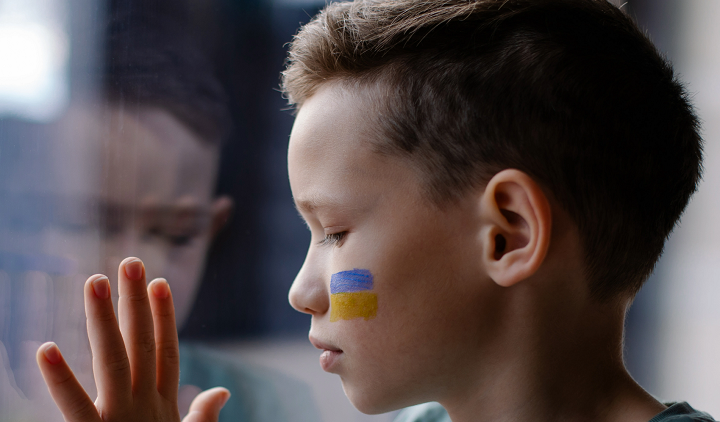Increased risk for suicidal thoughts and suicide attempts among adolescents exposed to the early phase of war in Ukraine
There has not previously been conducted any population-based study on suicidality among children and adolescents during the Russian invasion in Ukraine. A new study carried out by a multinational research group showed high levels of suicidal thoughts and attempts in adolescents, which were strongly associated with wartime traumatic experiences, post-traumatic stress disorder, depression and anxiety.
Dr Sanju Silwal from the Research Centre for Child Psychiatry in the University of Turku, Finland, one of the lead authors, tells that the study was conducted in two regions that were differently affected by war.
“The Donetsk region, which has experienced war since 2014, was affected to a greater degree, while the Kirovograd region, located in central Ukraine, was not affected by the war as directly”, Silwal says.
The study was conducted from September 2016 to January 2017 with participants aged 11-17 years. The study surveyed adolescents on their experiences of suicidal thoughts, suicide attempts, and wartime traumatic stressors. A total of 1449 participants from the Donetsk region and 1303 from the Kirovograd region took part in the survey.
The study revealed high prevalence of suicidality in the war-affected region of Donetsk (31.7%) compared to the less directly affected region of Kirovograd (18.6%), with girls reporting significantly higher rates than boys. Adolescent girls in the war-affected region reported more suicidal thoughts (39.3% vs 19.6%) and suicide attempts (9.5% vs 5.1%) compared to those living in region less directly affected by war. Boys in the war-affected region reported more suicidal thoughts (16.9% vs 9.8%) than their peers in the region less directly affected by the war.
Suicidal thoughts and attempts associated with PTSD, depression and anxiety symptoms
The study also showed exposure to a number of wartime traumatic stressors significantly associated with increased risk for suicidal thoughts and suicide attempts. Notably, those exposed to five or more wartime traumatic stressors were three-fold more likely to experience suicidal thoughts and suicide attempts. Most adolescents in the war-affected regions reported being victims of violence, forced separation from parents or family members, property damage or witnessed civilians being killed or injured.
In addition, suicidal thoughts and suicide attempts were strongly associated with post-traumatic stress symptoms, depression or anxiety symptoms.
The lead author, Professor Andre Sourander, MD says children and adolescents are among the most vulnerable groups during wars.
“One of the strengths of the present study is that it gives adolescents their own voice in the context of war. The Russian ongoing invasion of Ukraine has resulted in deaths of families and friends, serious injury, displacement, separation, collapse of community life, social isolation, financial hardships and multitude other wartime traumatic stressors. One out of three of adolescents living in war affected region report suicidal thoughts or suicide attempts emphasizing the detrimental influence of war on children and adolescent’s mental health“, says Professor Sourander.
The findings of the study are particularly relevant given the ongoing Russian full-scale invasion in Ukraine in 2022, which has entered its third year.
“Addressing the mental health needs of young people during humanitarian emergencies, such as war, poses a significant challenge. Policymakers and clinicians need to scale up efforts in delivering mental health support to war-affected adolescents”, Professor Sourander states.
The research article Suicidality and Self-Harm Behavior of Adolescents During the Early Phase of the War in Ukraine has been published as open access in the Journal of the American Academy of Child & Adolescent Psychiatry.
More information:
Professor Andre Sourander, andsou@utu.fi
Post-doctoral Researcher Sanju Silwal, sanju.silwal@utu.fi

